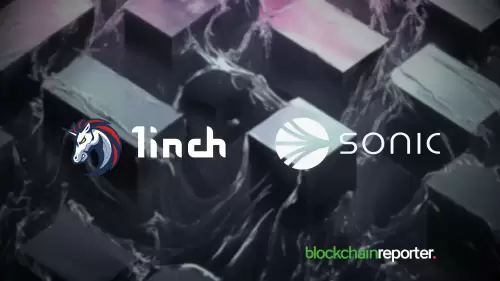Analyzing the Fed's stance, Bitcoin's potential as a hedge, and the impact of geopolitical tensions on inflation. What does it mean for your portfolio?

Buckle up, folks! The financial world's a bit of a rollercoaster right now, with the FOMC, Bitcoin (BTC), and inflation all vying for our attention. Let's dive into what's happening and what it might mean for your investments.
The Fed's Balancing Act: Stagflation on the Horizon?
The Federal Reserve recently held steady on interest rates, keeping them at 4.25%-4.50%. While this was widely expected, the Fed's economic projections paint a more nuanced picture. They foresee rates at 3.9% by the end of 2025, implying rate cuts this year. However, they've also dialed back growth expectations, projecting a GDP increase of only 1.4% this year (down from 1.7% in March). Simultaneously, they're anticipating higher inflation, with Personal Consumption Expenditures (PCE) and core PCE inflation landing at 3% and 3.1%, respectively, versus earlier forecasts. And unemployment? They see that creeping up too.
What does this all add up to? According to David Hernandez at 21Shares, it hints at stagflationary pressures: slow economic growth coupled with uncomfortably high inflation and unemployment.
Bitcoin: A Safe Haven in Uncertain Times?
So, where does Bitcoin fit into this equation? Well, amidst all the Fed's maneuvering and economic uncertainty, Bitcoin has been holding its own, hovering around the $105,000 mark. Hernandez argues that stagflation could actually be *good* for Bitcoin. Why? Because its scarcity, borderless nature, and independence from the U.S. economy make it an attractive store of value when traditional investments and fiat currencies are losing their luster.
Geopolitical Wildcards: Iran, Oil, and Inflation
But wait, there's more! Geopolitical tensions are adding another layer of complexity. Iran's recent move to control access to the Strait of Hormuz, a critical oil transit point, has sparked fears of an oil shock. If the Strait were fully closed, analysts warn that oil prices could skyrocket, potentially pushing US CPI inflation to 5%. That's a scenario that could put even more pressure on the Fed.
My Two Satoshis
Here's my take: The combination of potential stagflation and geopolitical risks creates a perfect storm of uncertainty. Bitcoin, with its limited supply and decentralized nature, offers a hedge against both inflation and economic instability. I agree with Hernandez’s assessment that new capital will inevitably search for assets that offer a store of value and potential for growth, a search that leads many directly to BTC. While I wouldn’t advocate putting all your eggs in one basket, allocating a portion of your portfolio to Bitcoin could be a smart move in this environment. And remember, always do your own research!
Wrapping Up: Keep Calm and Hodl On?
In conclusion, the current economic landscape is a bit like navigating a maze while juggling flaming torches. The Fed's trying to keep inflation in check without crashing the economy, geopolitical tensions are adding fuel to the fire, and Bitcoin's trying to figure out if it's the hero or just a really interesting sidekick. What a world! Stay informed, stay diversified, and maybe invest in a good stress ball. You've got this!






















































































